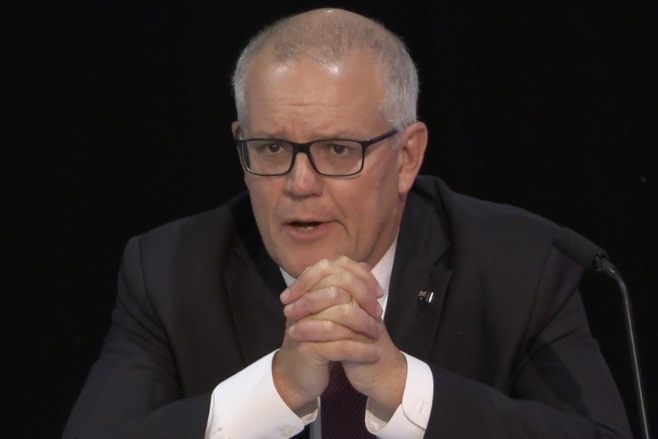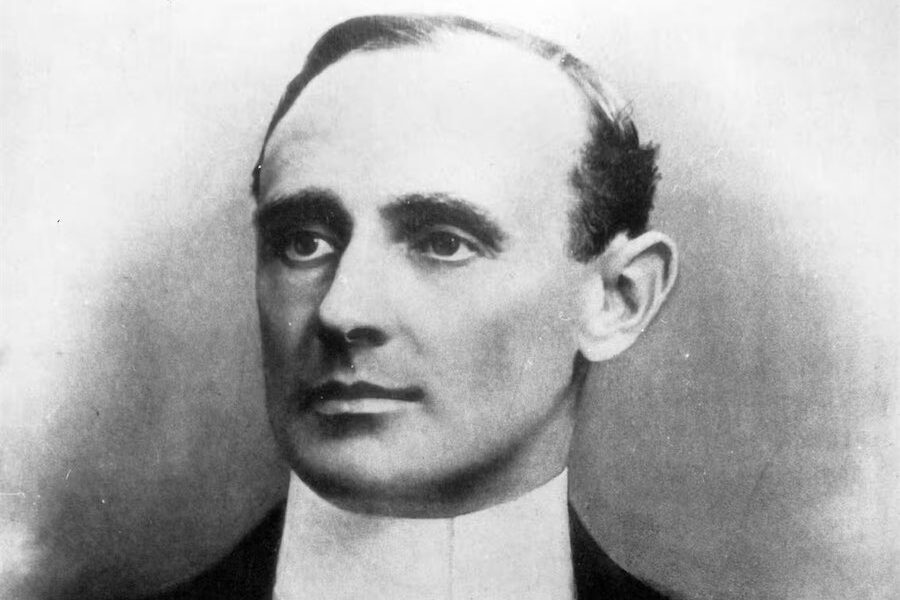
As senior minister at its inception, Morrison might be characterised (fairly or not) as the father of Robodebt, writes MICHELLE GRATTAN.
SCOTT Morrison will forever be known as “the bulldozer”, and he lived up to his self-description at the Robodebt royal commission this week.

It was vintage Morrison, verbally lumbering about, up and down side streets of varying relevance, as he gave evidence on a scandal that involved appalling treatment of people wrongfully pursued in the name of the “integrity” of the welfare system.
What the inquiry is exposing is the extent of the integrity failure within the former government and the federal public service.
As senior minister at its inception, Morrison might be characterised (fairly or not) as the father of Robodebt: it was developed by the department of human services together with input from his department while he was in the social services portfolio. Someone who saw himself as a tough “cop” on the welfare block, the plan, worked up in the bureaucracy, naturally appealed to him.
The big issue at Wednesday’s hearing was whether he was advised that legislation was needed for the scheme to be legal. Morrison said he wasn’t.
He maintained that, while an early executive minute referred to legislation, the final departmental submission did not indicate that would be required. A box asking whether the proposal would need legislative change was ticked “no”.
Pressed on why he did not pursue the matter, Morrison said he’d assumed the department had done its work. In the end, of course, the scheme was found illegal and the government had to repay a huge amount.
It was less the content of Wednesday’s evidence that was remarkable than the style of its delivery. Royal Commissioner Catherine Holmes reprimanded Morrison multiple times for rambling rather than simply answering what he was being asked.
At one point, rather in the manner of a school teacher, she asked him sharply if he was listening. At another, she said: “I do understand that you come from a background where rhetoric is important but it is necessary to listen to the question.”
Senior counsel assisting the commission, Justin Greggery, repeatedly called Morrison back on track, telling him ten minutes had been wasted in one diversion.
Painful to watch, Morrison’s performance was another reminder of how out of touch with his surroundings he can be, which was a major reason he flopped as PM.
While Morrison was having yet another bad week, his successor, Anthony Albanese, was enjoying his latest win, with the government’s energy package passing parliament, which had been recalled on Thursday to deal with it.
The legislation caps the gas price for 12 months, gives the government long-term authority to impose a “reasonable” price on gas, and provides a subsidy for the bills of some household and business users (with detail to be worked out over summer). This relief will cost the federal government $1.5 billion, matched by the states.
The legislation was always going to get through. The government is fortunate in having a compliant Senate, and the energy story gave an insight into how it operates.
The government needs the Greens plus one more vote to carry contested legislation. This majority will almost always be there; equally, there will usually be minor power play along the way.
On the energy bill, the Greens have received a promise of measures in the budget to help households and businesses electrify. Details later.
It was a gesture from the government but the Greens also had nowhere else to go if Labor had wanted to resist. Running into Christmas there was no way they were going to hold this up.
In any event, potential federal compensation for coal producers, if the production cost is above the coal cap the states are set to impose, is not contained in this legislation – and that compensation is the Greens’ main objection.
There’s an interesting dynamic in relation to Senate ACT independent David Pocock on the one hand, and Tasmanian crossbencher Jacqui Lambie (who now has a second senator, Tammy Tyrrell, in her Jacqui Lambie Network) on the other.
Pocock, new this term, has been high-profile and receives extensive media attention. The government relied on his vote to get its industrial relations legislation through, and he will be Labor’s natural go-to person.
On IR, the government gave some concessions to clinch a deal with Pocock, including agreeing to a new body that will review social security payments before each budget and provide recommendations.
Lambie, who was often in the news during the Morrison years, has been put somewhat in the shade by the arrival of Pocock and the configuration of the new Senate. It is not a position she’s used to. So it was unsurprising this week that Lambie was out of the blocks early, supporting the energy legislation. That meant Pocock’s vote wasn’t needed.
Jostling among the Senate crossbenchers – perhaps Pauline Hanson will deal One Nation into the play at some point – is something we’re likely to see in the months ahead. Crossbenchers need to be able to say to their voters they have the ability to “deliver”.
The energy package is the second major piece of legislation (the other was the IR bill) on which the government has clashed with business interests.
Business groups complained that the widening of multi-employer bargaining in the IR legislation would lead to more strikes. The government responded that its priority (and election commitment) was to get wages moving.
The handling of that legislation told business something it might have anticipated. Despite Albanese insisting he and the business community have a good relationship, when the crunch comes, the government won’t shy away from a fight with it.
The energy package has drawn protests and threats from some resource companies, with claims the government’s interventionist approach will deter investment.
Time will tell whether this is just hot air. Clearly the government judged it had little choice but to do something, given the massive increases householders and enterprises are facing in their bills.
Whatever the longer-term fallout, the government knows whose side the public will be on – and it won’t be that of the resource companies. And within business, manufacturers are happy at anything that restrains the magnitude of the price hikes.
Industry Minister Ed Husic has taken the lead on confronting the gas companies. This week, speaking to the Australian Financial Review, he accused them of “behaving just like big tech in threatening nations when they don’t like a regulatory response that’s done in the national economic interest”.
Labor’s major pieces of legislation go to two of the biggest issues the government faces – real wages that are a long way from increasing, and energy bills that will keep on rising. The government’s actions will to an extent ameliorate, but won’t solve these problems.
Wages and energy will remain dominant issues in 2023, continuing to put a lot of pressure on the Albanese government.![]()
Michelle Grattan, Professorial Fellow, University of Canberra. This article is republished from The Conversation.
Who can be trusted?
In a world of spin and confusion, there’s never been a more important time to support independent journalism in Canberra.
If you trust our work online and want to enforce the power of independent voices, I invite you to make a small contribution.
Every dollar of support is invested back into our journalism to help keep citynews.com.au strong and free.
Thank you,
Ian Meikle, editor




Leave a Reply